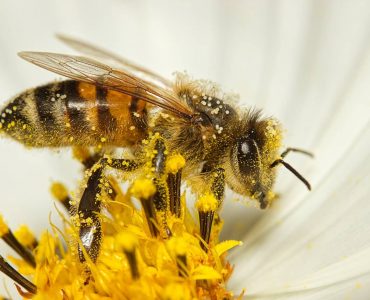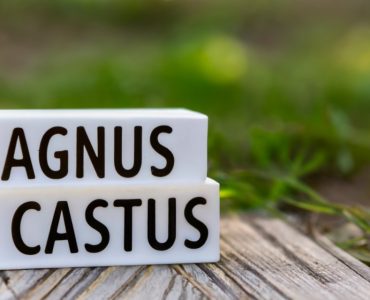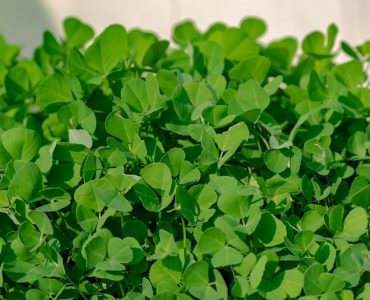Ornithine is non-essential amino acid produced from arginine in the body. It is also found in dairy products, meat, fish and eggs.
What it does
- Athletic Performance: Athletes and body builders have traditionally taken ornithone and arginine in combination becayse they are thought to stimulated the release of growth hormone and may increase muscle mass.
- Liver Protection: Ammonia, a major toxin to the liver, is converted into urea by ornithine and arginine. Ornithineis also needed for liver detoxification.
- Wound Healing: Ornithine supplementation enhances collagen synthesis and speeds repair time of tissue injury from surgery. It may also be supportive in patients with burns injuries.
- Convalescense: As part of the stress response to injury or illness, protein stores in the body get broken down to provide energy for other metabolic processes, this can be a major problem for the seriously ill patient. Supplementation with ornithine may help prevent lean muscle breakdown during illness, improving wound healing and recovery time.
- Immune System Support: Arginine (such as from ornithine conversion) may protect the thymus, the main gland of immunity, from damage, as well as aiding T-cell activity.
Ornithine is a non-essential amino acid that is produced naturally in the body. It is also found in some foods.
Ornithine plays a role in a number of important bodily functions, including:
- The urea cycle: Ornithine is involved in the urea cycle, which is the process by which the body removes ammonia from the blood. Ammonia is a toxic waste product of protein metabolism.
- Wound healing: Ornithine helps to promote wound healing by increasing the production of collagen.
- Muscle growth and repair: Ornithine is involved in the production of creatine, which is an important source of energy for muscle cells.
- Hormone production: Ornithine is a precursor to the amino acid arginine, which is used to produce a number of hormones, including growth hormone and insulin.
Foods with ornithine:

Ornithine is found in a variety of foods, including:
- Meat: Chicken, beef, pork, and lamb are all good sources of ornithine.
- Fish: Fatty fish, such as salmon and tuna, are particularly good sources of ornithine.
- Dairy products: Milk, cheese, and yogurt are all good sources of ornithine.
- Eggs: Eggs are a good source of ornithine, especially the white part of the egg.
- Legumes: Beans, lentils, and peas are all good sources of ornithine.
- Nuts and seeds: Walnuts, almonds, and sunflower seeds are all good sources of ornithine.
Impact on human body:
Ornithine plays an important role in a number of important bodily functions, including:
- Wound healing: Ornithine helps to promote wound healing by increasing the production of collagen. Collagen is a protein that is essential for the formation of new skin tissue.
- Muscle growth and repair: Ornithine is involved in the production of creatine, which is an important source of energy for muscle cells. Creatine helps to increase muscle mass and strength.
- Hormone production: Ornithine is a precursor to the amino acid arginine, which is used to produce a number of hormones, including growth hormone and insulin. Growth hormone is important for muscle growth and development. Insulin is important for regulating blood sugar levels.
Other benefits of ornithine:
- Sleep: Ornithine may help to improve sleep quality by increasing the production of melatonin. Melatonin is a hormone that regulates the sleep-wake cycle.
- Athletic performance: Ornithine may help to improve athletic performance by increasing muscle energy levels and reducing muscle fatigue.
- Weight loss: Ornithine may help to promote weight loss by increasing metabolism and reducing fat storage.
Potential Uses
| Athletic performance | Detox | Infections |
| Injuries | Post operative support | Cirrhosis |
| Convalescence |
Cautions
Ornithone should not be supplemented in cases of active herpes infection or schizophrenia.
Do not use in pregnancy or when breastfeeding.
Generally, there are no side effects or contra-indications from using ornithone.
At the time of writing there were no well known negative drug interactions with ornithone.
Ornithine transcarbamylase deficiency:
Ornithine transcarbamylase (OTC) deficiency is a rare genetic disorder that prevents the body from breaking down ammonia. This can lead to a build-up of ammonia in the blood, which can be toxic to the brain. Symptoms of OTC deficiency can include vomiting, lethargy, and coma. OTC deficiency is usually diagnosed in newborns or infants. Treatment for OTC deficiency includes a special diet and medication.
Why does ornithine help you sleep?
Ornithine may help you sleep by increasing the production of melatonin. Melatonin is a hormone that regulates the sleep-wake cycle. Ornithine may also help to reduce stress and anxiety, which can also improve sleep quality.
What is L arginine and L-ornithine good for?
L-arginine and L-ornithine are two amino acids that are often taken together as a supplement. L-arginine is converted into L-ornithine in the body. L-arginine and L-ornithine have a number of potential health benefits, including:
- Improved athletic performance
- Increased muscle mass and strength
- Reduced muscle fatigue
- Improved wound healing
- Improved sleep quality
- Reduced stress and anxiety
- Increased hormone production
What is the best source of ornithine?
The best source of ornithine is a diet that is rich in protein-rich foods, such as meat, fish, dairy products, eggs, and legumes. Ornithine supplements are also available, but it is important to talk to your doctor before taking any supplements.
What are the symptoms of OTC deficiency?
Symptoms of OTC deficiency can include:
- Vomiting
- Lethargy
- Coma
- Seizures
- Breathing problems
- Developmental delays
OTC deficiency is usually diagnosed in newborns or infants, but it can also develop in older children and adults.
What is l-ornithine used for?
L-ornithine is used for a variety of purposes, including:
- Improving athletic performance
- Increasing muscle mass and strength
- Reducing muscle fatigue
- Promoting wound healing
- Improving sleep quality
- Reducing stress and anxiety
- Increasing hormone production
L-ornithine is also sometimes used to treat ornithine transcarbamylase deficiency.





